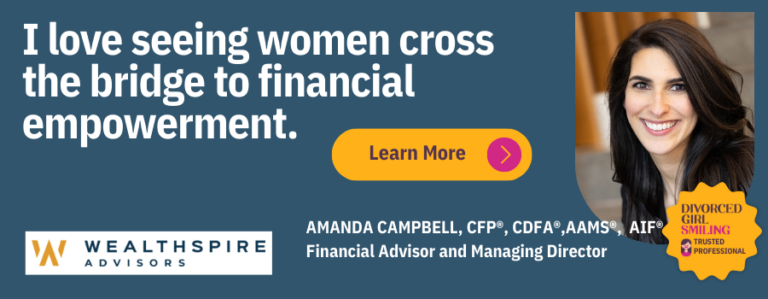We all have routines in our lives. Some are daily habits of self care, like taking care of our skin or exercising, while others occur less frequently but still play a regular role, such as doctor appointments or therapy sessions. These self care routines help us stay grounded and maintain our physical and mental well-being. However, there’s an area of self care that many women haven’t incorporated: a financial routine. Without financial self care, they are unknowingly undermining themselves.
According to a recent CNBC Financial Confidence Survey, over 70% of women admitted to feeling financially stressed. Add in the everyday stress of juggling work, family, and other life challenges and it can take a toll on your well-being and financial health. Balancing money with all the responsibilities of the modern world is a complex endeavor. And women have an added layer of nuance to tackle when it comes to financial well-being.
Consider that:
- There is still a gender pay gap, with women earning 82% of what men earn on average.
- Women tend to live longer than men, meaning they need their retirement funds to last longer and stretch farther.
- There are unavoidable experiences for women who are often relied on as primary caregivers for children and aging family members.
- Women need time off if they choose to have children, which impacts career growth and subsequent earning potential.
What if women approached money management as an area of self-care? The outcomes may be very different.
Here is Your Wealth Care Check List
Many women still struggle with financial stress. Fortunately, there are ways to incorporate a financial self-care routine into your life and improve your financial well-being.
1. Let Go of Negative Self-Talk About Money
First, women need to get away from the self-destructive stereotype that they aren’t good with money. This simply isn’t true as recent economic data shows that women outperform men in home ownership and reaching other financial milestones, compared to men. Negative self-talk only adds to anxiety and stress. While women still trail behind men in financial education, having the right mindset of “Yes, I can” can help close knowledge gaps and put you on the right track.
2. Educate Yourself
Women also need to be braver in becoming more financially savvy. It’s ok to not know something. Thankfully, with an internet connection and a little bit of research, many financial topics can be answered with a click away. There are also many spaces like blogs and podcasts that teach finance specifically from the female perspective, creating a safe space for conversation and education.
3. Take Control of the Purse Strings
It has only been in the past few decades that women have had the opportunity to manage their finances independently – without a co-signature of a man – when opening a bank account, buying real estate, or even taking out a line of credit. Furthermore, women are still underrepresented in higher-earning roles like in the financial industry, where only 27% of financial advisors identify as female.
However, these barriers are slowly crumbling, as women are taking charge of their household finances and actively participating in investment decisions. Moreover, the number of single-parent households where women take the lead has also grown, forcing many to get actively involved with learning about their financial options. This trend has not gone unnoticed.
To keep up with the growing demand, financial advisors are increasingly offering workshops tailored to women, providing education on various financial topics like retirement saving, investing, and estate planning. The work to get to financial well-being doesn’t stop there. Women still need to take caution in educating themselves, getting involved, and building healthy routines to ensure their financial success.
4. Set Short and Long-Term Goals
Planning for the short-term and long-term future is also key. Depending on where you are in your life, your goals could range from buying your first home, starting a family, and paying off your student loans to having a robust retirement fund so you can enjoy your golden years. Spend some time thinking about what you want your life to be like now, in five years, ten years, or when you turn 65. Once you have an idea of your life ambitions, a financial advisor can work with you to create a plan that will help you achieve your goals now and in the future.
5. Make Incremental Changes
It may be inspiring and intimidating to see the many investors showcasing their success online. However, they didn’t find success overnight. It happened by taking the right baby steps, setting a realistic budget, and being ok with a slow and steady approach. This may be as simple of putting away $25 each week to save over a $1,000 by the end of the year. If an employer offers contribution matching – take advantage! And if not, a little saving can grow a long way by the time you need it.
The same can be said for tapping into the power of insurance, which can protect your income, should something unforeseen happen. It may be tempting to take an aggressive approach to saving and debt repayment; however, being overly ambitious can lead to discouragement and work against enjoying financial well-being.
In closing, the area of self care having to do with finances may seem like a lot of work, but even small steps can significantly impact your long-term well-being. Start in at least one area of your life, built that routine, and then add the next step. Ultimately, if you don’t know where to start, professional guidance can help assess your financial health, and help create a plan to put you on the right track to long-term financial success and wellness.





















